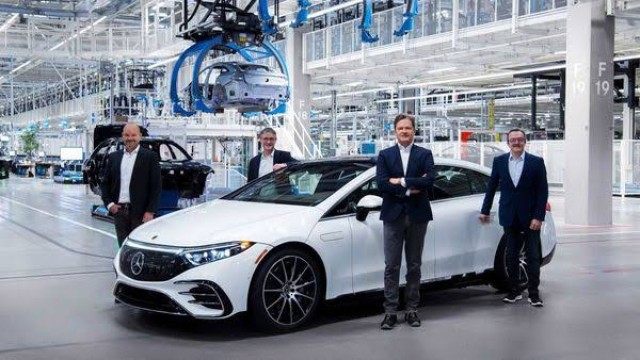Mercedes-Benz announced on Thursday a delay in its electrification target by five years, signaling a continued emphasis on enhancing its lineup of combustion engine vehicles. The decision reflects a trend among carmakers indicating a slower-than-expected uptake of battery-powered cars.
The company now aims for electrified vehicles, including hybrids, to comprise up to 50% of its total sales by 2030, pushing back the previous target set in 2021, which aimed for a 50% milestone by 2025 primarily with all-electric cars.
Despite significant investments in electric vehicle technology, actual demand for EVs has not matched expectations, prompting car manufacturers to reassess their production plans. CEO Ola Kaellenius acknowledged that all-electric sales in Europe are unlikely to reach 100% by 2030, with battery-powered cars currently accounting for just 11% of total sales.
Mercedes-Benz reassured customers and investors of its commitment to producing combustion engine cars and announced plans to update the technology well into the next decade. Kaellenius highlighted the company's intention to introduce a new lineup by 2027, extending its competitiveness into the 2030s.
Following the news, shares in the luxury carmaker rose by 5.9%, supported by a 3 billion euro share buyback program unveiled the previous day.
However, Mercedes-Benz also cited challenges such as slower economic growth, supply chain disruptions, and trade tensions impacting its outlook for 2024. The company anticipates lower returns on sales across its car and van division, with first-quarter sales expected to fall below the previous year's level due to ongoing component shortages.
Electrified vehicle sales, including hybrids, are forecasted to remain at approximately 19-21% of the total, while adjusted returns on sales are expected to decline for 2024 compared to the previous year. Despite these challenges, Mercedes-Benz reported an increase in average price and an uptick in spending on research and development for future technologies.
Overall, group earnings before interest and taxes dipped slightly from the previous year, despite a modest rise in revenue. The company remains focused on navigating market dynamics and investing in innovation to maintain its competitive edge in the automotive industry.































Comment: